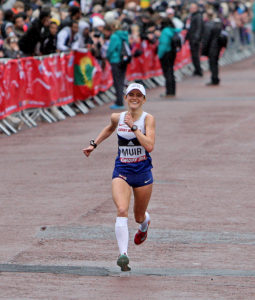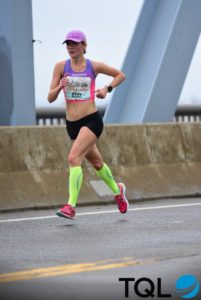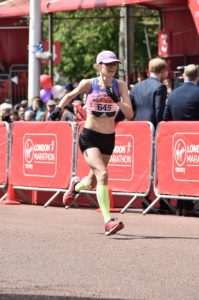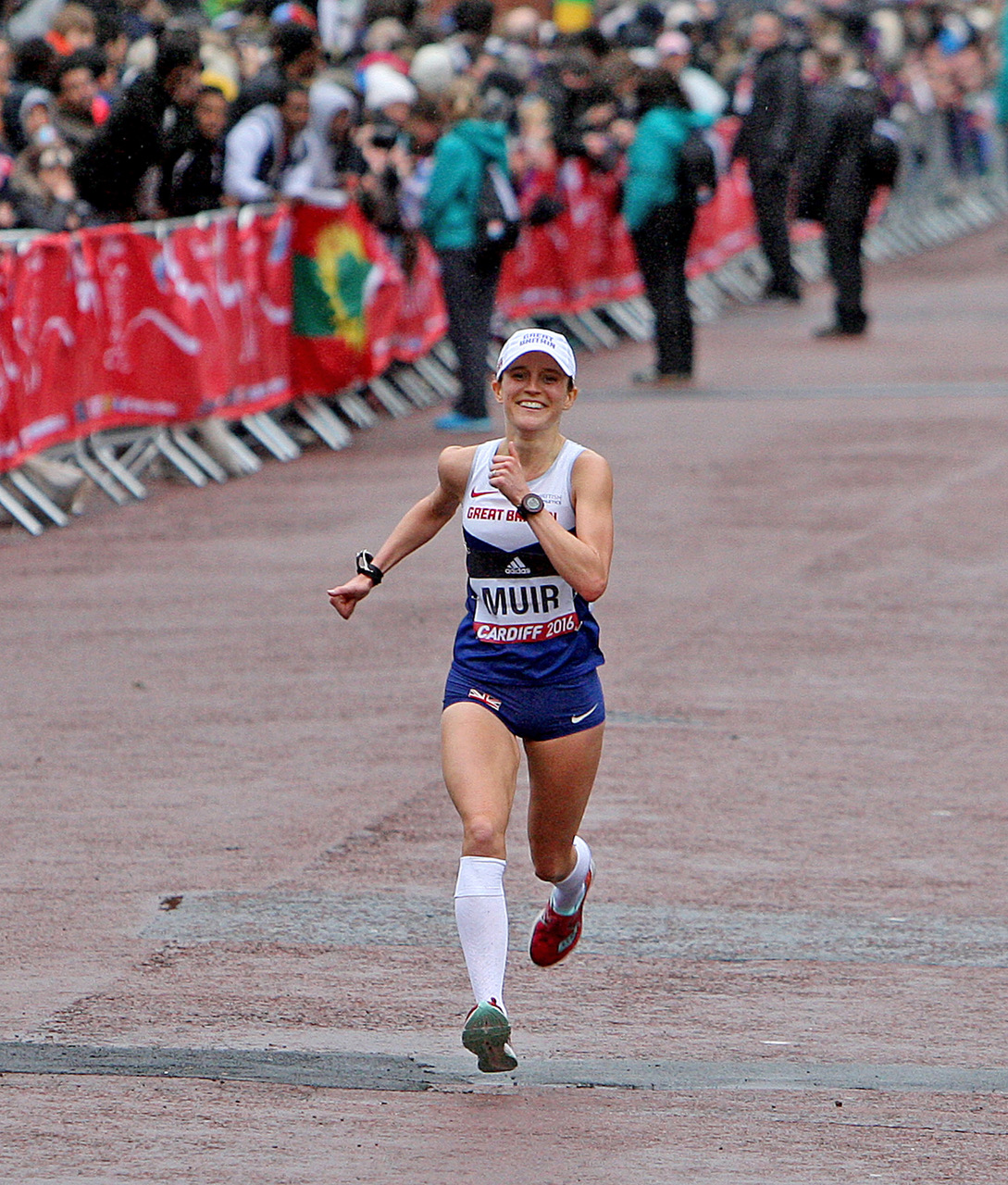QK: You have had a very successful athletic career (that isn’t yet over) representing Great Britain and you have PBs from 16:08 for a 5km through to 2:36 for the marathon. In Australasia you won’t be well known unless the reader also listens to your Podcast on Runners Connect. Can you give us a quick summary of your athletic career thus far?
TM: Wow, that is a loaded question! You do know I tend to ramble, right?  I will try to keep it brief!
I will try to keep it brief!
 I will try to keep it brief!
I will try to keep it brief!I started running around age 14, not through choice, but because somehow I ended up near the front in my cross country classes and was added to the cross country team. Once I realized that hard work led to finishing higher, and therefore a better sense of accomplishment, I started to train a little more. By the age of 17, I was good enough to be recruited to the US to run at university there. I had always loved the way America supports university athletics, so I took a leap of faith, and travelled to Ferris State University in Michigan, where I spent the next five years improving considerably. That is where most of my shorter distance PBs came from, but I always knew I would love the marathon someday.
After University, I was fortunate enough to be supported by Saucony as I tried to pursue a post-collegiate running career. I was able to lower my 5km and 10km PBs a little, before moving onto the half marathon and marathon.
Last year, all the hard work I had put in over the last 14 years paid off, when I achieved my number one running goal of representing GB in a world championship. I have also gone from a 2:49 first marathon to 2:36 in the last three years and I believe I have a lot more in me.

QK: What do you consider your greatest athletic achievement?
TM: I think you probably know the answer based off my above answer, but yes, representing Great Britain and Northern Ireland in the World Half Marathon Championships as that vest had always been the carrot dangling in front of my eyes on days I struggled with motivation. To finally achieve it, was incredible.
QK: What is your next athletic goal?
TM: I have not yet decided on a BIG scary goal yet, although breaking 2:30 in the marathon is definitely a long term goal of mine, but for the most part, now I tend to just focus on doing my best in each race I am lucky enough to race in. I find this helps me to enjoy it more, remove the pressure, and actually allow my body to tell me what I am ready for at this point in time, rather than allowing my mind to psyche me out. I know that sounds cheesy, but most of us run our best when we can’t see the time or pace.
QK: You have also worked as a Coach in the US collegiate system. What have been the highlights of your time coaching?
TM: I loved seeing the smile on the athletes faces when they achieved a big goal or ran a time that they did not think they were capable of. It was so rewarding to see others put in the hard work day after day, wondering if they were ever going to make it, then at a time when it is least expected, it all comes together, and you see their face light up as they realize just how good they can be.
 QK: You have recently moved on from your role as a Runners Connect Community Manager to focus on establishing your own business. What is your goal/aim for this business?
QK: You have recently moved on from your role as a Runners Connect Community Manager to focus on establishing your own business. What is your goal/aim for this business?TM: I want to tackle the mental and confidence side of running. The part that is absolutely critical to our running success and enjoyment, but is completely swept under the carpet. We all have doubts, fears, and struggles, but we live in a world where only the highlights are shown to the world, which can leave us feeling alone and depressed, especially when things are not going well. I want to create a place where people can share their highs and lows without feeling like they are the only one struggling. I figured if as an elite I can step out and admit that I find it hard, then maybe others could be real with one another, and we could encourage each other through those tough moments.
QK: What is your favourite workout to run?
TM: I love progression runs. These are long runs that are completed a few times during a marathon buildup, but leave you feeling confident that you can run well for 26.2 miles. Progression runs for me involve starting at easy run pace, and getting faster as the run goes on. I love getting into a rhythm as my body warms up, and just getting faster with every passing mile. Once I complete one of those runs of around 20 miles, knowing my last few miles were around or faster than race pace, they leave me excited and feeling strong.
QK: Is this your favourite workout to prescribe as a coach?
TM: I love to set people the 20 x 400m workout with 90 seconds rest between because it is one that sounds so intimidating on paper, but it is another one of those workouts that just builds your confidence, as your body gets into a rhythm, and runners often end up running a lot faster towards the end than they thought they could in the first few. It is another of those workouts that sounds so scary, but leaves you confident and proud of what you have accomplished.

QK: What have you learned over the last twelve months that more people should know?
TM: I feel like we are constantly learning and growing, so I could give many things I have enjoyed finding out, but the biggest one that comes to mind is just how important strength training and heavy lifting is for runners. I started to realise it was important about two years ago, but in the last year, while moving into the more advanced workouts with my strength coach, Drew Watts, it has made HUGE differences to my training, and my ability to stay healthy. I would recommend all runners try to find a strength coach to work with, and if you can’t, Drew and I are actually working on a strength training plan for runners, so stay tuned, as it is going to be really cool 

QK: What are the two biggest training mistakes you have made and how have you come back from them?
TM: The first was becoming too obsessed with running, letting it define who I was, and allowing it to overtake my life. I started to make my whole world revolve around running, and it was no longer a healthy relationship as I wasn’t living any longer. I also started to run my recovery runs too fast, because I thought that to be faster I had to run faster every day. Pretty soon my body broke down, and I ended up with injury after injury during the next year, which of course made my world come crumbling down. It was only at this point, I realised that I needed to have some balance in my life, and find some other things I enjoyed, not have my entire sense of happiness tied to being a successful runner. I wrote a list of things I enjoyed doing, and started working my way through it while I healed both physically and emotionally.
The second one was to listen to my body when it comes to injuries. As runners we tend to ignore that little voice pleading with you to stop as it hurts and it is pushing through that pain barrier that allows us to be successful. I have learned that you know in your heart when something is hurting that is not going to go away. If you keep ignoring niggles, they are going to turn into injuries, and if you ignore those injuries, they will turn into bigger injuries. Sometimes we do need to give our bodies a little while to figure out a pain, but I have learned that deep down, you know whether it is something to stop or not. So if the pain is more than a 4/10 I always now err on the side of caution, and take a few days off before it turns into something big.
Connect with Tina:
- TinaMuir.com (website)
- Running for Real (Facebook)
- @tinamuir88 (
Instagram) - @tinamuir (twitter)
